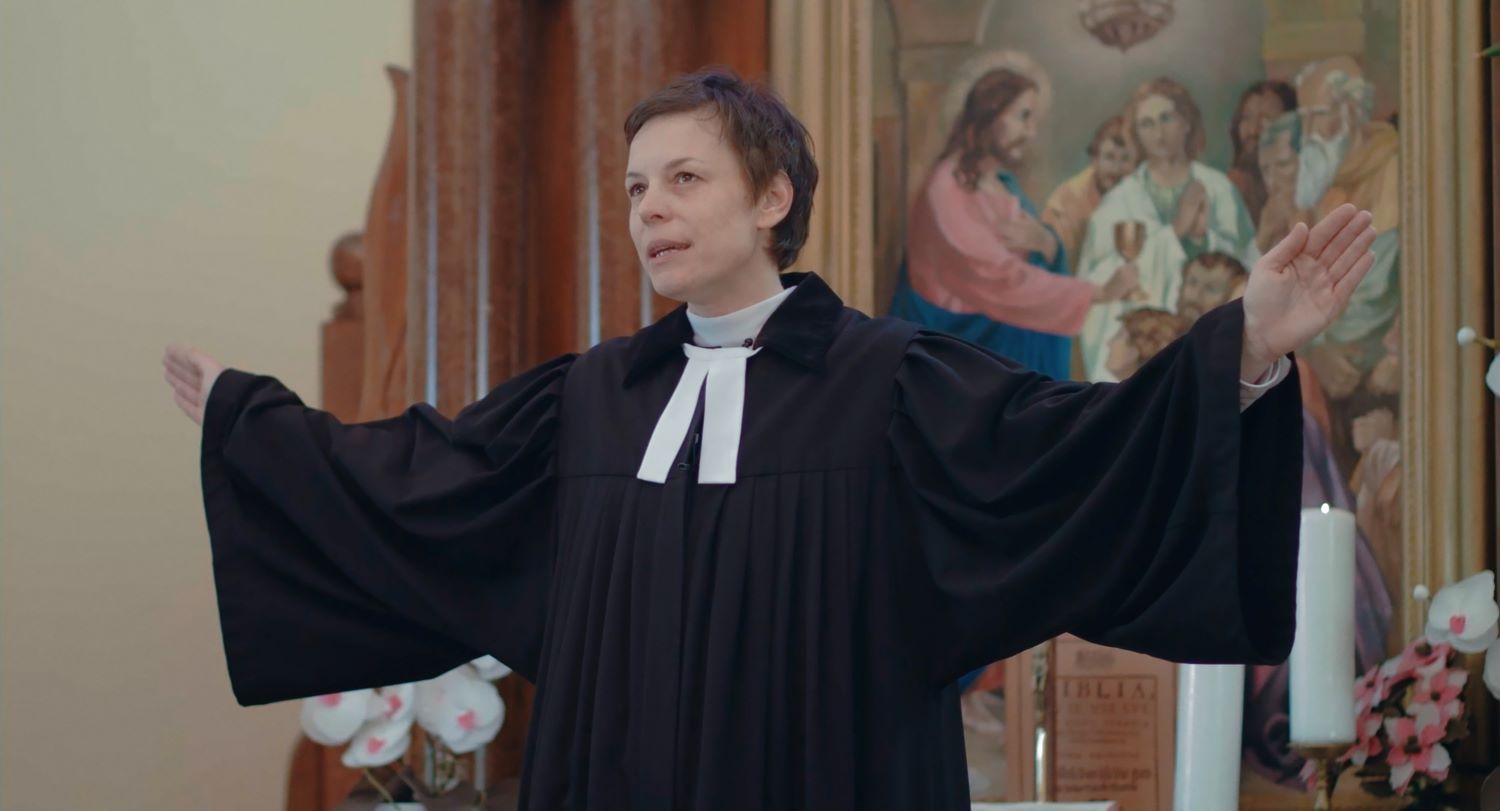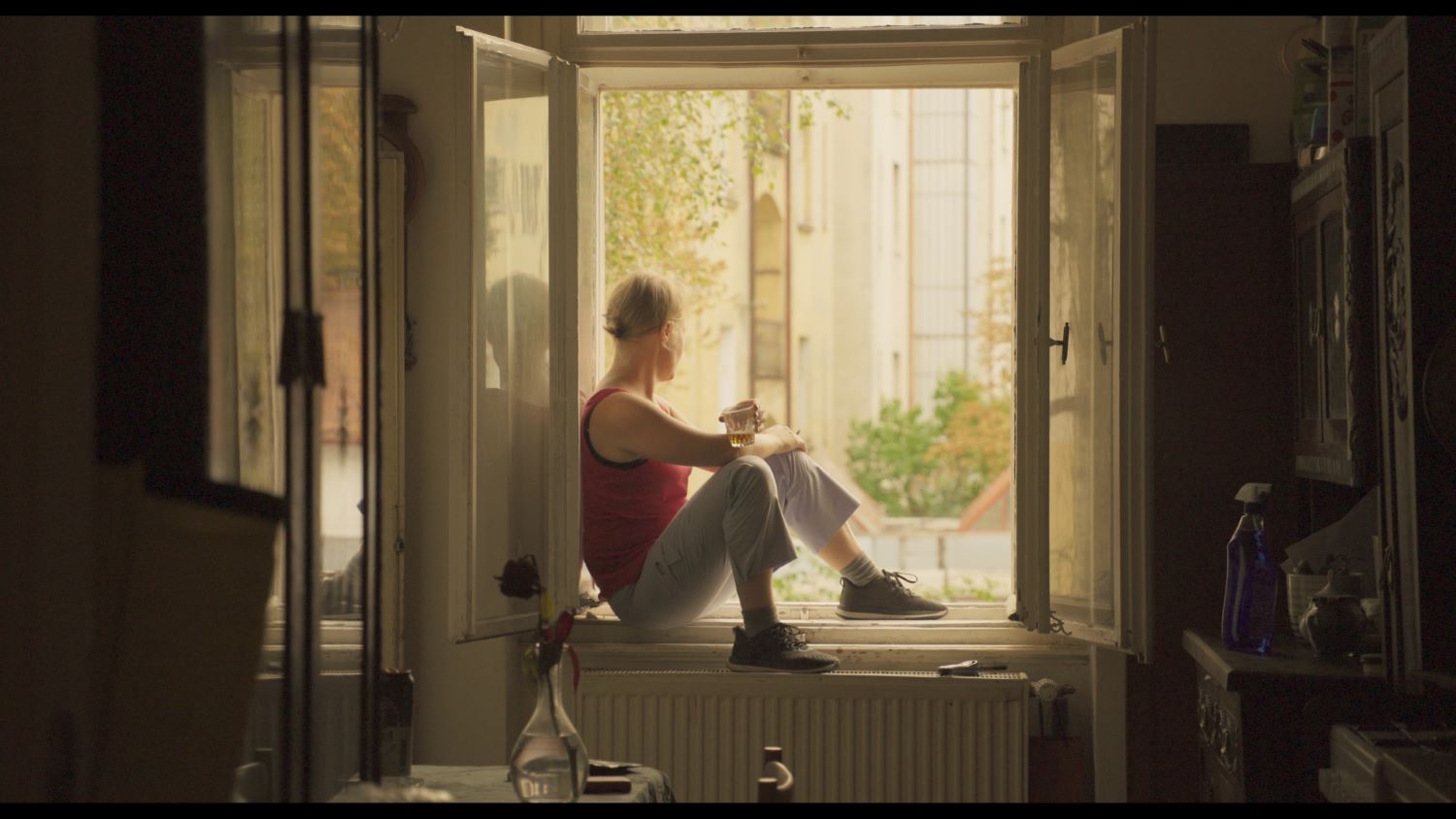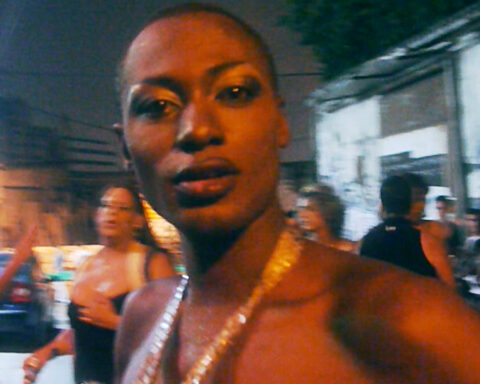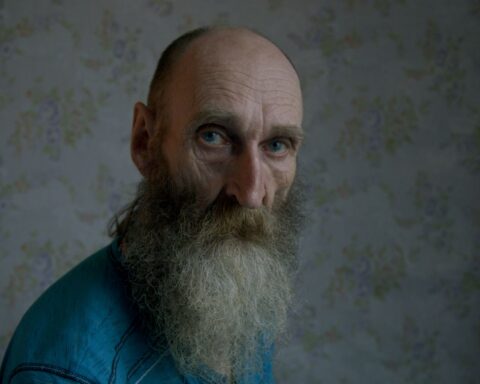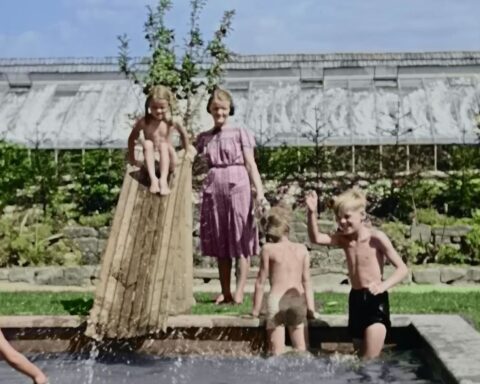Woman of God
(Slovenia, 2023)
Dir. Maja Prettner
Programme: The Changing Face of Europe (International Premiere)
Although it presents only the beginning of a process, Woman of God remains an inspiring act of reconciliation with the past. At its core, the film offers a straightforward portrait of one pastor’s struggles with the patriarchy and her subsequent crisis of faith. But when the subject suddenly uncovers a traumatic event from childhood that shifts focus, the filmmaker faces an uneasy task. While director Maja Prettner can’t quite achieve the pivot necessary to fully explore the subsequent consequences, she does manage to render a moving depiction of personal courage.
Woman of God follows Jana, an Evangelical Protestant pastor leading a parish in small town Slovenia. She balances the demands of her work life–conducting masses, caring for parishioners, organizing events–with the traditional responsibilities of a married woman, including the maintenance of her home, daughter, and extended family. She’s a modern professional in an old-fashioned context. Her husband is supportive of her aspirations but only up to a point.
When the film opens, Jana is happily ensconced in her religious faith, practically beaming with the joy that comes from absolute conviction. But as she talks more about herself, a darker secret is revealed. That’s when tensions manifest in both her personal and professional realms. Suddenly scenes of her relaxing with extended family and old friends are intercut with this former beacon of sunshine bickering with parishioners and her husband.
The film does a fairly good job of chronicling the life of a person with deeply established beliefs, who has to deal with them becoming derailed. Director Prettner does so indirectly, as an observational doc would, by recording details of daily existence. But sticking to this strategy prevents it from digging further into the cause of her subject’s difficulties.
Structurally, by clinging to its verité roots, the film mirrors the subject’s emotional detachment. This makes sense up only to a point. It reflects Jana’s disconnect as she thrusts her attentions into life’s minutiae. The viewer indirectly gets a sense of the reality of her existence. But Woman of God presents Jana’s revelation as only one element in her crisis of faith rather than a vital throughline that needs to be picked up and explored.
The main problem is that Jana’s disclosure comes quite early on in the film. In a heartbreaking moment of candour, she unburdens herself in a confessional scene where she is alone in her car with the camera. But Prettner, instead of stopping, and expanding on the ramifications of such a confession, which would involve switching her narrative strategy, sticks to the film’s original structure as an observational doc. Instead of exploring Jana’s revelation, Prettner takes us back to the events and rhythms within Jana’s work and family life.
Because Prettner sticks to her original focus without switching when the subject does, the subject’s trauma cannot be worked out during the film. As a result, Jana’s ordeal receives a cursory treatment since it is not spoken of in more depth until much later. Her trauma, recounted in a frank manner, deserves more focused attention. The viewer can only surmise the effects of this incident through her behaviour.
In all fairness to the filmmaker, this issue is complicated. Anyone with a knowledge of sexual abuse survivors and their behaviour understands that sometimes revelations can be sudden and abrupt. And as is the case in this film, the person diverts attention to something else, a minor event or detail. Yet, one can’t help but wish that the film had been able to push past this point to linger more on Jana’s own eventual insights. This is where greater understanding lies. It would have made for a meatier film and a more profound statement.
In the end, though, Woman of God creates a portrait of an individual who is exhausted and overwhelmed by her circumstances, a situation that is familiar to all who struggle. Even when a cruel twist of fate kicks in, Jana remains steadfast, and this is to be applauded. All in all, the Maja Prettner provides an important depiction of bravery and presents, in Jana, an individual who has faced life’s challenges head on.




